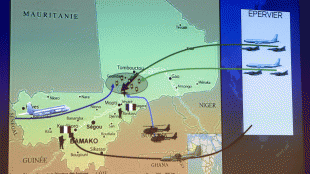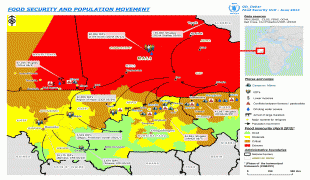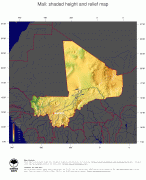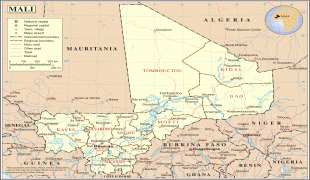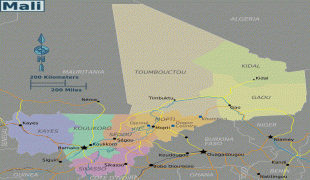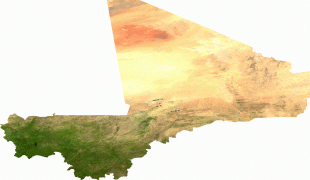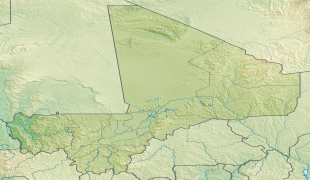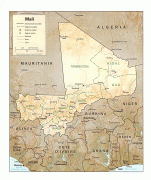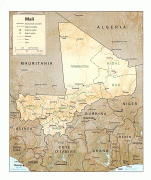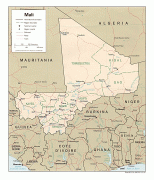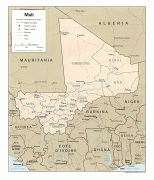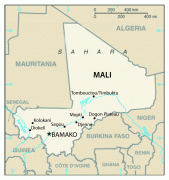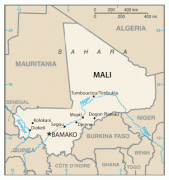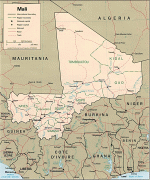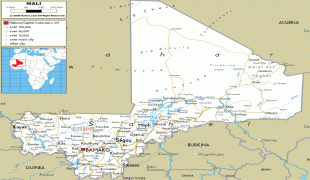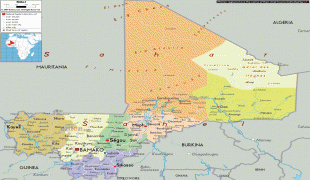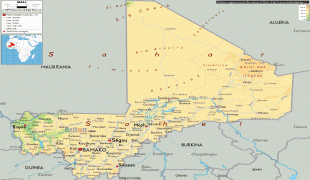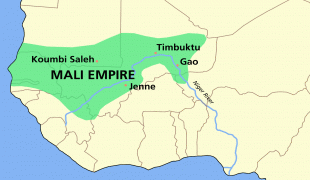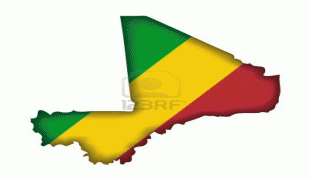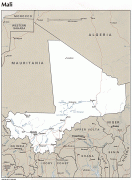Mali (Republic of Mali)
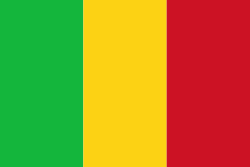 |
|
| Flag of Mali | |
Present-day Mali was once part of three extremely powerful and wealthy West African empires that controlled trans-Saharan trade: the Ghana Empire (for which Ghana is named), the Mali Empire (for which Mali is named), and the Songhai Empire. At its peak in 1300, the Mali Empire was the wealthiest country in Africa, covering an area about twice the size of modern-day France and stretched to the west coast of the continent. Mali was also one of the wealthiest countries on earth, and its emperor at its zenith, Mansa Musa, is believed to be possibly the wealthiest individual in history. Besides being an economic powerhouse, medieval Mali was a centre of Islam, culture and knowledge, with Timbuktu becoming a renowned place of learning with its university, one of the oldest in the world still active. The expanding Songhai Empire absorbed the empire in 1468, followed by a Saadian army which defeated the Songhai in 1591. In the late 19th century, during the Scramble for Africa, France seized control of Mali, making it a part of French Sudan. French Sudan (then known as the Sudanese Republic) joined with Senegal in 1959, achieving independence in 1960 as the Mali Federation. Shortly thereafter, following Senegal's withdrawal from the federation, the Sudanese Republic declared itself the independent Republic of Mali. After a long period of one-party rule, a coup in 1991 led to the writing of a new constitution and the establishment of Mali as a democratic, multi-party state.
In January 2012, an armed conflict broke out in northern Mali, in which Tuareg rebels took control of a territory in the north, and in April declared the secession of a new state, Azawad. The conflict was complicated by a military coup that took place in March and later fighting between Tuareg and other rebel factions. In response to territorial gains, the French military launched Operation Serval in January 2013. A month later, Malian and French forces recaptured most of the north, although the conflict still continued. Presidential elections were held on 28 July 2013, with a second-round run-off held on 11 August, and legislative elections were held on 24 November and 15 December 2013.
In the early 2020s Mali experienced two military takeovers by Assimi Goïta.
The name Mali is taken from the name of the Mali Empire. The name means "the place where the king lives" and carries a connotation of strength.
Guinean writer Djibril Niane suggests in Sundiata: An Epic of Old Mali (1965) that it is not impossible that Mali was the name given to one of the capitals of the emperors. 14th-century Maghrebi traveller Ibn Battuta reported that the capital of the Mali Empire was called Mali. One Mandinka tradition tells that the legendary first emperor Sundiata Keita changed himself into a hippopotamus upon his death in the Sankarani River and that it's possible to find villages in the area of this river, termed "old Mali", which have Mali for a name. A study of Malian proverbs noted that in old Mali, there is a village called Malikoma, which means "New Mali", and that Mali could have formerly been the name of a city.
Another theory suggests that Mali is a Fulani pronunciation of the name of the Mande peoples. It is suggested that a sound shift led to the change, whereby in Fulani the alveolar segment shifts to and the terminal vowel denasalizes and raises, leading "Manden" to shift to.
Currency / Language
| ISO | Currency | Symbol | Significant figures |
|---|---|---|---|
| XOF | West African CFA franc | Fr | 0 |
| ISO | Language |
|---|---|
| BM | Bambara language |
| FR | French language |






